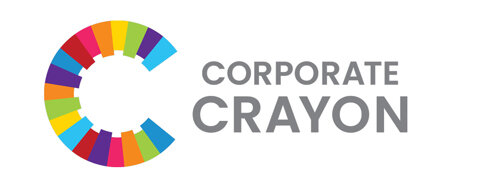How to use the power of mentoring to promote and sustain a high-performing team
By Hannah Jameson & Evelyn Jackson (CEO)
Have you ever had a mentor in your life? Business or personal? Someone that’s shown you how to move forward in business and in life? Leaving their thoughts and feelings as an imprint on you to learn from? For those that have, you’ll understand that being aligned with someone who's done it all before can be the difference between making a great decision and leaving you to pick up the pieces of making a bad one.
Creating space and time for a mentor within your organisation or outsourcing someone to fill that void is just one of the many components of producing a high-performing team. Here at Corporate Crayon, we partner with organisations and individuals to inspire work that matters–something that mentors know a whole lot about. Through partnering with these organisations and our background in behavioural psychology, we’ve seen first-hand the difference that a mentor can help to create your dream team.
The Difference Between A Mentor And A Manager/Leader
If you're thinking, “I already have a manager. Why do I need a mentor?" Put simply, the roles of manager and mentor are different. Here's the difference.
Mentor
A mentor usually (but not always) comes from an external source of the organisation, is there to provide guidance and has experience within a particular field. A mentor and mentee relationship is more like a friendship that benefits both parties. They're there to probe questions, encourage, offer advice and be a sounding board for the mentee to listen and absorb information.
Leader
Unlike a mentor, a leader or manager takes charge of internal or day to day company situations, such as giving direction. These types of people are the ones who put their trust in employees and give them the space to let them do their best work.
Can A Mentor And Leader Be The Same Person?
Within an organisation, a leader can be a mentor, and a mentor can be a leader. While it takes a special person to fill both roles and is something more unique than other situations, it’s possible. Often internal mentors will be outside your direct area/department in order to facilitate the distinction of roles. Discovering and utilising that one individual to the best of your organisation's ability gives you a chance to nurture a high-performing team.
The Benefits Of Having A Mentor For High-Performing Teams
Mentorship and leadership go hand in hand. Using these roles and people internally or bringing them in externally gives teams the guidance they need. No matter how high-performing your team is or how high-performing you think it might be, individuals will always look for an example and guidance. So the benefits of facilitating a mentor to an individual or a team are endless.
Support Professional Development
Creating and allowing a space for professional development in the workplace is a must within all organisations. Providing support and creating an atmosphere that encourages learning and upskilling will reap the benefits. Think of introducing a mentor as a form of professional development. Mentors can shine a light and guide the team or individual, refuelling their energy and pointing them in the right direction. A mentor can work in consultation with the manager/ leader and the employee to round up their personal development and support building a high-performing team.
Improve Employee Energy and Retention
Employee Energy is all about employee engagement, motivation, delivering discretionary effort and boosting staff morale within an organisation. It’s about ensuring that employee wellbeing is high so that employees can complete their best work.
Providing an external mentor allows employees to openly share areas they need help with without the fear of being seen as ‘unskilled’. Employees can feel confident to discuss and have vulnerable conversations that they would most likely have avoided with those internally. While at the same time learning from an expert who has done it before. Having a constructive outlet to speak to will enable employees to find solutions and give them a sense of growth and achievement, not to mention the knowledge that their company is investing in them. All of these factors are critical in retaining your best talent.
Increase Productivity And Output
Sustaining a reliable level of productivity and output amongst a high-performing team is critical for most organisations. Adding mentoring to your people and culture strategy supports upskilling in a way that is better received by employees today. Empowering them to identify the areas to learn more about and develop. When employees feel empowered and are held accountable by their mentors (a common trait of a mentoring relationship), they are often inspired to continue learning and focus on what makes a difference and truly matters.
How Corporate Crayon Can Help
Corporate Crayon partners with organisations to promote employee energy and create meaningful work. Offering the service of mentoring for organisations, we help teams to find the freedom to work better and develop the skills they need with purpose and meaning.
Our partner organisation, Find My Meaning offers one to one mentoring for individuals looking to invest in this service themselves. Through Find My Meaning, you’ll receive coaching, resources and a supportive community to lean into for ongoing support.

